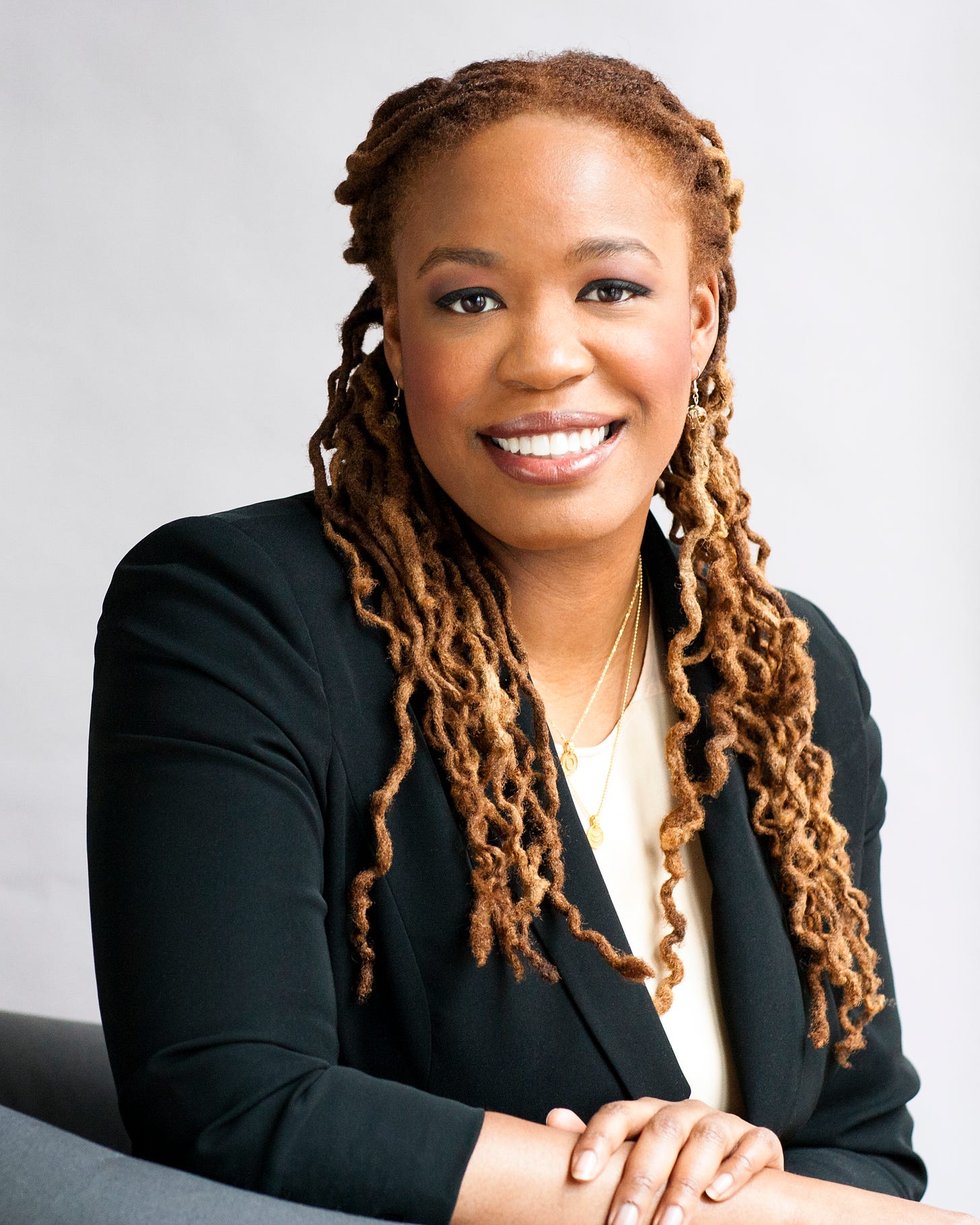Ending the uncivil war
Talking with policy guru Heather McGhee about how racism keeps us from having nice things, why the portals of disinformation need to be shut down, and how America can save itself in the Biden era
Yesterday, in language both eloquent and plainspoken, Joe Biden summoned America into a new era. Whether people will come is another matter. He called for an end to the enmity and bitterness and mutual disgust that have defined this age of division. He invoked a hope of renewed common purpose in solving extraordinary problems.
Betraying his possible status as a closet Ink reader, he spoke of ending our “uncivil war.” (I still prefer “cold civil war,” but…)
But what will it take actually to end it? That is the subject of an interview I just did with Heather McGhee, a writer, policy guru, think tanker, and author of the new book “The Sum of Us: What Racism Costs Everyone and How We Can Prosper Together.”
Heather is a brilliant and original thinker who toggles easily between theory and practice, writing trenchantly about our national condition, drafting legislation, advising organizations, and then analyzing the whole shebang on television.
She has thought as hard as anyone about the problem President Biden now faces: how to unite the country, not by simply and emptily trying to unite it, but by fighting to make people’s lives better and convincing enough people that it is preferable to share the country with people who don’t look like you than to burn its institutions down.
“The Sum of Us” is going to be one of the more talked-about books of the year — mark my words. I’m thrilled that Heather’s first interview about it anywhere is with The Ink.
Which is a good chance to remind you that subscribing to The Ink is the best way to keep this newsletter free and open to all, and to support an independent publication that hopefully makes you think and enlivens your conversations. (And, if this new report is to be believed, is influencing the conversation in Washington.) I appreciate your support.
“To save this country from itself”: a conversation with Heather McGhee
ANAND: Your new book, “The Sum of Us,” argues that racism costs everyone, not just people of color. Can you recount the parable of the pool that anchors your argument?
HEATHER: The parable is a story that I grew up learning from family members. It was a very visceral memory for many of them. There was a grand, resort-style public swimming pool in the heart of their community. In fact, in the United States there were more than 2,000 of them that were built with tax dollars over the '20s, '30s, and '40s. In many ways, it was one of the most real, everyday examples of the New Deal consensus of government being a force for the improvement of the everyday quality of life of its citizens.
Yet in so many of these communities, the pools were for whites only or were segregated. In the 1950s and '60s, as the courts began to knock down these segregation codes in recreational facilities, many towns in virtually every region of the country decided to drain their public swimming pools, rather than integrate them. This happened in St. Louis. It happened in West Virginia, in Ohio, in Florida, and Louisiana.
When racism drained the public pool, everyone in the town — including white families — lost out.
It's the parable at the heart of “The Sum of Us,” because in many ways the era that I've known my whole life, the inequality era, has been defined most dramatically by the hollowing out of the public goods that we share in common, an era of austerity and a lack of investment in public infrastructure. Both the crumbling public infrastructure that we have, whether it's dams that are breaching and bridges that are collapsing and pipes that are leaching, or the kind of social infrastructure that we desperately need that we haven't even invested in like truly universal health care and child care.
The opening sentence of my book asks, “Why can’t we have nice things?” And the answer is that racism has drained our pools.
Keep reading with a 7-day free trial
Subscribe to The.Ink to keep reading this post and get 7 days of free access to the full post archives.





